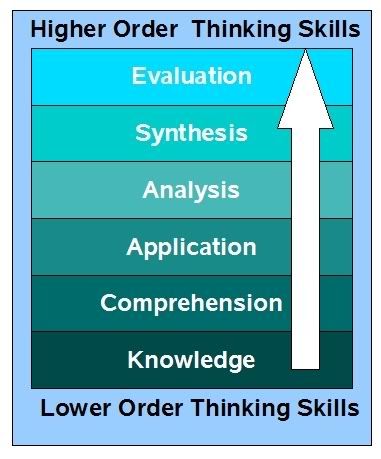The Art of Asking Questions -- The classroom edition
Questions, questions.
Asking questions reveals the depth of learning.
The answers show connections made.
The responses give a glimpse at the extent of understanding.
A while back, I wrote about the art of questions and some basic rules I try to keep in mind in asking questions. Today I wanted to share some of what I have discovered about questions in the "classroom."
We often spend good money on teacher's guides or study guides to accompany a textbook or reading book. Part of this stems from the fact that we recognize the value of questions and the other prompts that fill these materials. We need something more than just a good book in order for our children to learn and apply the substance of what they hear and see.
We also need conversation, often peppered with thought provoking questions.
Consider a hypothetical reading follow-up conversation:
Did you finish the reading?
- yes
Did you like it?
- uh huh
What was it about?
- some kids and they did some stuff
Boys or girls?
- both
And on it goes. Like prying open a clam.
This might be a reasonable starting point, although rather dry and shallow. What we really want is for kids to think while they read and study, not just spit back specific answers regardless of the depth of the comprehension.
To make sure that my teaching and "prying" gets deeper I have found Bloom's Taxonomy helpful in formulating questions.
For those unfamiliar with Bloom's taxonomy, let me give you a brief synopsis. Basically, in 1956 Benjamin Bloom along with some other educational psychologists developed a hierarchy of learning levels which they categorized and summarized. Now, I don't always agree with much of the "educational psychology" floating around out there, but I do find some benefit to learning and utilizing this scale.
Basically, we want to encourage our students to learn to greater depth, not just memorizing facts, but applying them to situations. Here is a summary of what these levels entail (starting from the bottom):
- Knowledge -- memorizing facts, repeating back basic information
- Comprehension -- restating the facts in your own words
- Application -- taking the information into a new setting and applying that knowledge
- Analysis -- dissecting the information for validity and strength
- Synthesis -- Combining information to come up with a new outcome
- Evaluation -- Making it more personal, including values and morals, defending or criticizing
As kids get older, our questions should more frequently take them into the higher levels of thinking. As Christians, we definitely want to push them to the Evaluation level to challenge them to defend their positions and solidify their convictions.
Instead of asking, "What did the king do when . . . ?" ask, "How would a world leader implement this today?" Instead of "List Martin Luther's complaints." Try, "Distinguish between the positions of Luther and the Pope."
In the place of repeating back knowledge, we seek application and understanding. This makes me think harder, but it makes my kids get so much deeper into a topic and forces them to wrestle with it and make it their own.
I use these levels to evaluate my expectations of my kids. If the focus of our history lesson becomes the dates and names of a certain time period, we aren't accomplishing much. But, if in the process of discussion a child points out that this king should have learned from the one we read about a previous day, or they recall the progression of events that led to disaster and can articulate what a historical figure might have done to prevent that . . . then we are getting somewhere.
Again, as homeschoolers we have the advantage in assessing our student's grasp of a topic. We don't have a class of 30 kids that need to take turns asking and answering questions. We don't have to pass out a written quiz and have them trade papers to grade to find out if they caught the key points in the reading. We can simply talk to them, each one of them in depth.
Charlotte Mason would call this the Grand Conversation. I call it essential, and one of my favorite parts of schooling my kids. Getting past the 'what' to the 'why.' Digging through the facts to plant the fascination.
Some links on Bloom's Taxonomy and other question asking skills:
- Critical Thinking has a great little book about the power of the well framed question, and they say, "The Quality of our thinking is given in the quality of our questions."
- A description of activities and their corresponding levels in Bloom's Taxonomy.
- A summary of Bloom as well as some more recent revisions made to his work.
The deeper your questions, the deeper they must dig for the answers, the deeper their learning through the process, and often the deeper they will dig on their own the next time.
In an area that kids love and jump into independently, they may pull us for a ride through their knowledge and applications gained. But, in those topics that they must learn, but don't always enjoy, raising the expectation can encourage them to dig deeper as they see a challenge to rise to.
So, what are your thoughts?
What have you done with your kids to encourage the depth of their learning?
Were you familiar with Bloom's Taxonomy, and what do you think of it?
I would love to hear . . .
Asking questions reveals the depth of learning.
The answers show connections made.
The responses give a glimpse at the extent of understanding.
A while back, I wrote about the art of questions and some basic rules I try to keep in mind in asking questions. Today I wanted to share some of what I have discovered about questions in the "classroom."
We often spend good money on teacher's guides or study guides to accompany a textbook or reading book. Part of this stems from the fact that we recognize the value of questions and the other prompts that fill these materials. We need something more than just a good book in order for our children to learn and apply the substance of what they hear and see.
We also need conversation, often peppered with thought provoking questions.
Consider a hypothetical reading follow-up conversation:
Did you finish the reading?
- yes
Did you like it?
- uh huh
What was it about?
- some kids and they did some stuff
Boys or girls?
- both
And on it goes. Like prying open a clam.
This might be a reasonable starting point, although rather dry and shallow. What we really want is for kids to think while they read and study, not just spit back specific answers regardless of the depth of the comprehension.
To make sure that my teaching and "prying" gets deeper I have found Bloom's Taxonomy helpful in formulating questions.
For those unfamiliar with Bloom's taxonomy, let me give you a brief synopsis. Basically, in 1956 Benjamin Bloom along with some other educational psychologists developed a hierarchy of learning levels which they categorized and summarized. Now, I don't always agree with much of the "educational psychology" floating around out there, but I do find some benefit to learning and utilizing this scale.
Basically, we want to encourage our students to learn to greater depth, not just memorizing facts, but applying them to situations. Here is a summary of what these levels entail (starting from the bottom):
- Knowledge -- memorizing facts, repeating back basic information
- Comprehension -- restating the facts in your own words
- Application -- taking the information into a new setting and applying that knowledge
- Analysis -- dissecting the information for validity and strength
- Synthesis -- Combining information to come up with a new outcome
- Evaluation -- Making it more personal, including values and morals, defending or criticizing
As kids get older, our questions should more frequently take them into the higher levels of thinking. As Christians, we definitely want to push them to the Evaluation level to challenge them to defend their positions and solidify their convictions.
Instead of asking, "What did the king do when . . . ?" ask, "How would a world leader implement this today?" Instead of "List Martin Luther's complaints." Try, "Distinguish between the positions of Luther and the Pope."
In the place of repeating back knowledge, we seek application and understanding. This makes me think harder, but it makes my kids get so much deeper into a topic and forces them to wrestle with it and make it their own.
I use these levels to evaluate my expectations of my kids. If the focus of our history lesson becomes the dates and names of a certain time period, we aren't accomplishing much. But, if in the process of discussion a child points out that this king should have learned from the one we read about a previous day, or they recall the progression of events that led to disaster and can articulate what a historical figure might have done to prevent that . . . then we are getting somewhere.
Again, as homeschoolers we have the advantage in assessing our student's grasp of a topic. We don't have a class of 30 kids that need to take turns asking and answering questions. We don't have to pass out a written quiz and have them trade papers to grade to find out if they caught the key points in the reading. We can simply talk to them, each one of them in depth.
Charlotte Mason would call this the Grand Conversation. I call it essential, and one of my favorite parts of schooling my kids. Getting past the 'what' to the 'why.' Digging through the facts to plant the fascination.
Some links on Bloom's Taxonomy and other question asking skills:
- Critical Thinking has a great little book about the power of the well framed question, and they say, "The Quality of our thinking is given in the quality of our questions."
- A description of activities and their corresponding levels in Bloom's Taxonomy.
- A summary of Bloom as well as some more recent revisions made to his work.
The deeper your questions, the deeper they must dig for the answers, the deeper their learning through the process, and often the deeper they will dig on their own the next time.
In an area that kids love and jump into independently, they may pull us for a ride through their knowledge and applications gained. But, in those topics that they must learn, but don't always enjoy, raising the expectation can encourage them to dig deeper as they see a challenge to rise to.
So, what are your thoughts?
What have you done with your kids to encourage the depth of their learning?
Were you familiar with Bloom's Taxonomy, and what do you think of it?
I would love to hear . . .


Comments